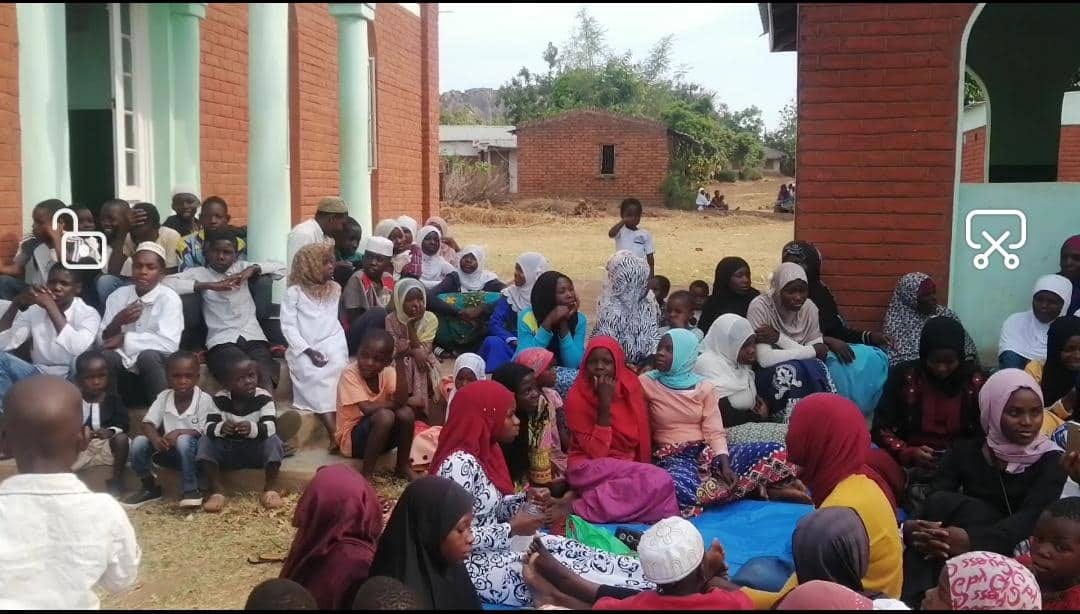University of Malawi Muslim Students Association (Unimsa) Sisters Chapter: Dressing the Less Privileged in Zomba
The Unimsa Sisters Chapter initiated this compassionate effort after recognizing that many people living near the college lack fundamental amenities.
Zomba, Malawi – The University of Malawi Muslim female students, operating under the banner of the University of Malawi Muslim Students Association (Unimsa) Sisters Chapter, are making a significant impact through a charity drive aimed at dressing and providing for the less privileged in and around Zomba, where their college is located, writes Thabit Mussa.
Beyond clothing, the students are also supplying essential items like foodstuffs to needy students and households.
The Unimsa Sisters Chapter initiated this compassionate effort after recognizing that many people living near the college lack fundamental amenities.
Zainab Sululu, chairperson of the group, explained that they observed a disparity where some people in rural Zomba and across Malawi lacked basic necessities such as clothing, while some students and the general public had clothes they no longer needed.
"The idea came after realizing that most people in rural Zomba and Malawi as a whole lack basic necessities such as food, clothing, and shelter, while some students at the University of Malawi and the general public often have clothes that are either discarded while still in good condition or left unused. As such, we decided to launch this initiative where we collect unused clothing and donate it to those in need," Sululu shared.
During holidays, members of the group mobilize fellow students through various social media platforms such as WhatsApp, Facebook, and Instagram to bring back pieces of unused clothing from home.
Since its inception in 2021, the initiative has had a meaningful impact on communities around Zomba.
"Most people here are subsistence farmers who usually don't harvest enough to feed themselves, let alone sell crops to buy other necessities like clothes. This situation has various implications, including absenteeism among school-going children due to a lack of proper clothing. For that reason, we are grateful to the Muslim sisters from the University of Malawi who distributed clothes to people in our village," said Sheikh Patrick Issa, a cleric at Jali Perusi mosque in T/A Chikowi.
"There is increased attendance at the mosque and schools because of the clothes that we received," added Sheikh Issa, who also benefited from the initiative.
Thirteen-year-old Dalitso Jafali expressed gratitude to the group for dressing her and giving her the opportunity to return to school.
"I'm so grateful that I received some clothes because my siblings and I didn't have enough proper clothing to the extent that we could not go to school due to a lack of clothes. However, we are now able to attend school every day," said Dalitso, who resides in Jali Perusi village.
In addition to donating clothes, the students encourage beneficiaries to recite poems and Quranic verses. The donated clothes include dresses, scarves, shirts, blouses, and shoes.
The University of Malawi Muslim Students Association (Unimsa) Sisters Chapter has been actively assisting financially disadvantaged students with food rations and rental support.
"I was on the verge of withdrawing from the University of Malawi due to a lack of finances, but thanks to the Unimsa Sisters who came to my rescue and assisted me with money for rent and food," said Halima Majidu, a third-year Bachelor of Education (Mathematics) student at the University.
However, like many projects in Malawi, the initiative faces challenges, the most significant being a lack of funds for transporting clothes to communities.
"It is often a challenge for us to transport the items to the desired communities. So, we introduced a K1,000 monthly contribution for members, which we use to run the programme," explained Esnart Chuma, the programme director of the Unimsa Sisters Chapter.
The group hopes that some organisations will support them with resources to reach as many needy people as possible, further extending their compassionate efforts in uplifting their communities.



